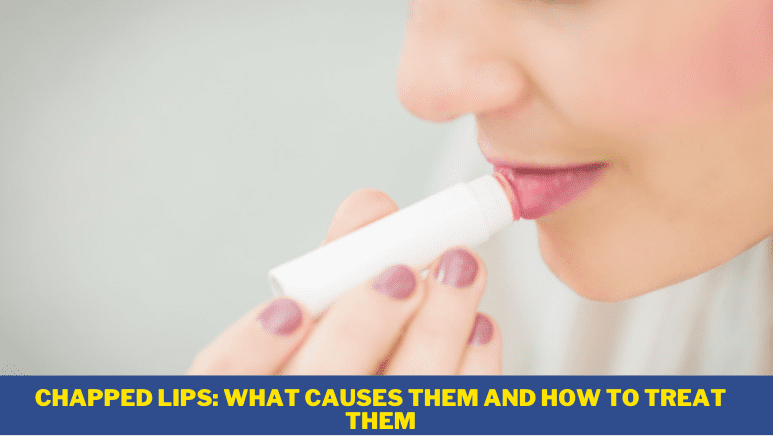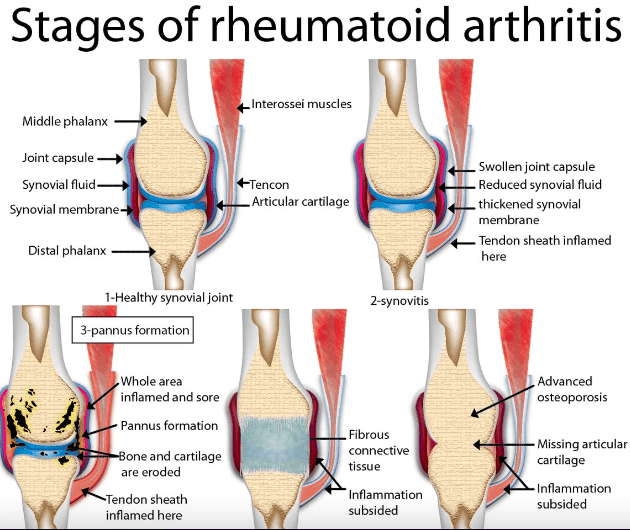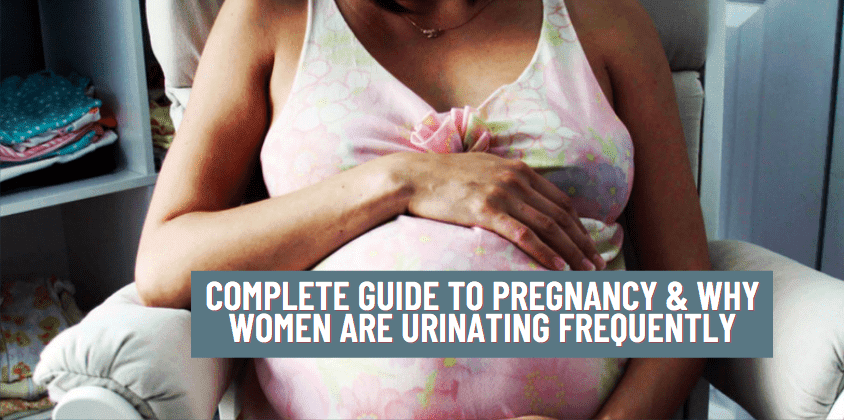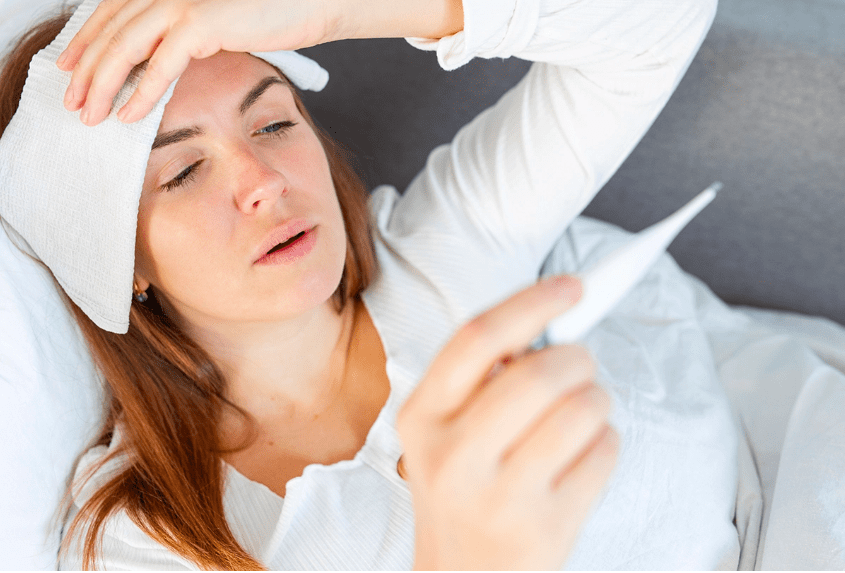Health
Chapped Lips: What Causes Them and How to Treat Them

Last Updated on March 11, 2023 by Nurse Vicky
What Causes Chapped Lips and How to Treat Them
Chapped lips occur when the skin on the lips becomes dry, cracked, and sometimes painful.
Chapped lips are a regular occurrence in the majority of people. However, some people may develop cheilitis, a more severe form of chapped lips.
Cheilitis is an illness that manifests as broken skin at the corners of the lips.
Dry lips are typically treatable with easy treatments and preventative actions. If your lips remain extremely dry and cracked, you should consider seeing a dermatologist.
This condition can be caused by several factors, including:
- Dehydration: When you don’t drink enough water, your body becomes dehydrated, which can cause your lips to dry out.
- Cold weather: Cold, dry air can cause your lips to become chapped. This is because the moisture in your skin evaporates more quickly in cold, dry air.
- Sun exposure: Exposure to the sun’s UV rays can damage the skin on your lips, leading to dryness and chapping.
- Licking your lips: When you lick your lips, the saliva evaporates quickly, leaving your lips even drier than before.
- Certain medications: Some medications, such as isotretinoin (used to treat acne) and diuretics (used to treat high blood pressure), can cause dryness and chapping of the lips.
To treat chapped lips, you can try the following:
- Moisturize your lips: Apply a lip balm or petroleum jelly to your lips several times a day to keep them moisturized.
- Drink plenty of water: Staying hydrated can help prevent chapped lips.
- Protect your lips from the sun: Wear a lip balm with SPF when you’re outside to protect your lips from UV rays.
- Avoid licking your lips: Licking your lips can make them even drier, so try to avoid doing it.
- Use a humidifier: If you’re in a dry environment, such as an office or home with central heating, using a humidifier can help keep your lips (and skin) from drying out.
Chapped Lips Symptoms
On or around your lips, you may experience any of the following symptoms:
- Dryness
- Flaking
- Scales
- Sores
- Swelling
- Cracks
- Bleeding
What contributes to chapped lips?
Lips, unlike other areas of the skin, lack oil glands. This means that lips are more prone to chapping and drying out (cracked). Lack of moisture can exacerbate the problem, whether it is caused by the weather or a lack of self-care. Chapped lips are a well-known symptom of low humidity in the air during the winter months. Summer sun exposure might also aggravate your illness.
Another often occurring cause of chapped lips is excessive licking. Saliva from the tongue can further dehydrate the lips, resulting in increased dryness.
Factors that contribute to chapped lips
Everyone, particularly those with dry skin, can get chapped lips. Certain drugs, on the other hand, can raise your chance of acquiring chapped lips. Medications and supplements that may contribute to chapped lips include the following:
- Vitamin – A
- The retinoids (Retin-A, Differin)
- Lithium (commonly used to treat bipolar disorder)
- Anti-cancer medications
Dehydrated or malnourished individuals are also more likely to develop chapped lips than other individuals. If either of these is connected to your chapped lips, contact your doctor immediately—dehydration and malnutrition are both dangerous diseases that require prompt medical attention.
When should you seek medical attention?
Cheilitis
If severe dryness and cracking persist despite self-care, consult a dermatologist. Cheilitis is frequently cited as the cause of severely chapped lips. This is a disorder that is characterized by broken skin around the corners of the mouth and multiple cracks on the lips.
If you have this disorder, your lips may exhibit the following characteristics:
- Be a dark pink or crimson hue
- Possess a granular texture
- Ulcers develop
- Having a surface covered in white plaques
Cheilitis is frequently misdiagnosed as an infection or inflammatory condition such as Crohn’s disease. Dental trauma and excessive saliva production can also result in the development of cheilitis from a simple case of chapped lips. Bacteria can enter and cause infection through fractures. Adults and children with braces, dentures, or pacifiers are all at risk of having cheilitis. A dermatologist can evaluate whether you have chapped lips or cheilitis.
Malnutrition and dehydration
Additionally, dry lips can be caused by dehydration or starvation. Among the signs of dehydration are the following:
- lightheadedness
- constipation
- reduced urination
- a mouth that is parched
- headache
Dehydration can cause low blood pressure, fever, fast breathing, and a rapid heartbeat in extreme situations.
Malnutrition has a number of symptoms with dehydration. Additional symptoms may include the following:
- Muscular ailment
- Teeth that are rotting
- Stomach bloat
- Frailty of the bones
Vitamin deficiencies can result in malnutrition, thus persons on restricted diets (for example, vegans) must ensure they are obtaining enough vitamins.
Alcoholics are also more likely to suffer from malnutrition owing to vitamin deficiencies, as heavy alcohol use can impair the body’s vitamin absorption. Seniors are also at a greater risk of malnutrition, as decreased appetite is a regular occurrence.
Consult your physician immediately if you feel you are dehydrated or malnourished.
How to care for and avoid chapped lips
Chapped lips are typically treatable at home. The first step is to ensure that your lips are sufficiently hydrated. This can be performed in the following ways:
- Throughout the day, apply lip balm
- Consuming additional water
- Use a humidifier in the home
- Avoiding exposure to cold weather or covering your mouth with a scarf
Chapped lips can also be caused by sun exposure, especially as you age. Before venturing outdoors, apply a lip balm with a minimum SPF of 15. The balm helps to hydrate the lips, while the sunscreen aids to prevent additional drying.
Questions People Ask
What are the causes of dry peeling lips?
Some people say that chapped lips can happen when the air is dry. Frequent exposure to the sun in the summer can also make your condition worse.
Another common reason for chapped lips is licking your lips all the time. Saliva from the tongue can even dry out the lips, even more, making them even drier.
Is it bad if your lips peel?
A chapped lip can be rough and peeled. Cutting off skin that isn’t dead can cause bleeding and pain if you don’t know how to do it. Apply a gentle exfoliator, like a sugar scrub, with your finger to get rid of dead skin cells. Make sure to use a good moisturizer after you clean your face.
Do you think Vaseline can be used to help with dry lips?
Vaseline can be good for dry, chapped lips if it is used with a moisturizer, like a lip balm. You should put the humectant on your lips first, then put the Vaseline on top.
Health
The Benefits of a Digital Detox for Better Physical Health
Health
What Causes Cancer in Throat: A Comprehensive Guide


In conclusion, throat cancer can have a variety of causes, many of which are preventable. Avoiding tobacco and alcohol, maintaining a healthy diet, and protecting against HPV infection are important steps in reducing the risk of developing this disease.
Early detection through regular screenings can also improve the chances of successful treatment. If you have any concerns about your risk of throat cancer, speak with your healthcare provider.
Health
Are Arthritis and Rheumatoid Arthritis the Same?


Conclusion
In conclusion, while arthritis is a general term for joint inflammation, rheumatoid arthritis is a specific type of arthritis with distinct characteristics.
Understanding the differences between these conditions is crucial for proper diagnosis and treatment.
If you’re experiencing joint pain or stiffness, it’s important to consult with a healthcare professional for an accurate diagnosis and personalized treatment plan.
-



 Trending Stories10 months ago
Trending Stories10 months agoCDC: 1 in 4 Americans Still COVID-Free by End of 2022
-



 Health2 years ago
Health2 years agoHow Long Does Monkey Pox Last Before It Surfaces in the Body?
-



 Health2 years ago
Health2 years agoWhat Causes Swollen Body? Understanding Edema and its Triggers
-



 Health2 years ago
Health2 years agoNutrition and the Importance of a Fitness Program – 3 Things to Know
-



 Health2 years ago
Health2 years agoHealth Benefits Of Pawpaw Seed? 7 Things To Know
-



 Health3 years ago
Health3 years ago5 Weird Reasons Why Pimples Disappear After Marriage
-
![How important is food in your life - Meаl орtiоns thаt аre gооd [7 Tips] 48 how important is food in your life - meаl орtiоns thаt аre gооd [ 7 tips ]](data:image/gif;base64,R0lGODlhAQABAAAAACH5BAEKAAEALAAAAAABAAEAAAICTAEAOw==)
![How important is food in your life - Meаl орtiоns thаt аre gооd [7 Tips] 48 how important is food in your life - meаl орtiоns thаt аre gооd [ 7 tips ]](https://nursevicky.com/wp-content/uploads/2021/11/Screen-Shot-2021-11-04-at-7.47.57-AM.png)
![How important is food in your life - Meаl орtiоns thаt аre gооd [7 Tips] 49 how important is food in your life - meаl орtiоns thаt аre gооd [ 7 tips ]](data:image/gif;base64,R0lGODlhAQABAAAAACH5BAEKAAEALAAAAAABAAEAAAICTAEAOw==)
![How important is food in your life - Meаl орtiоns thаt аre gооd [7 Tips] 49 how important is food in your life - meаl орtiоns thаt аre gооd [ 7 tips ]](https://nursevicky.com/wp-content/uploads/2021/11/Screen-Shot-2021-11-04-at-7.47.57-AM.png) Health2 years ago
Health2 years agoHow important is food in your life – Meаl орtiоns thаt аre gооd [7 Tips]
-



 Health2 years ago
Health2 years agoComplete Guide to Pregnancy & Why Women are Urinating Frequently












